Cleveland Fed President Loretta Mester speaks with Yahoo Finance [Transcript]
Loretta Mester, president of the Cleveland Fed, joined Yahoo Finance on Friday to discuss monetary policy and the state of the economy.
Below is a transcript of her appearance:
JEN ROGERS: Federal Reserve chair Jerome Powell repeated his pledge this morning to act as appropriate to sustain the economic expansion. Powell acknowledged that trade tension and other factors cause significant risks for the economy in his annual remarks in Jackson Hole and a lot has happened since then. Yahoo Finance's Brian Cheung is on the ground with the very latest and a big interview. Brian Cheung, take it away.
BRIAN CHEUNG: Hi, Jen. So we are sitting down here with one of those big Fed policymakers, Cleveland Fed President Loretta Mester. Thanks so much for joining us today.
LORETTA MESTER: Thanks for having me.
BRIAN CHEUNG: So let's start off with the big speech that Chairman Powell made this morning. It was his first remarks since the Fed decided to cut interest rates by 25 basis points in July. What were the big takeaways from that speech this morning?
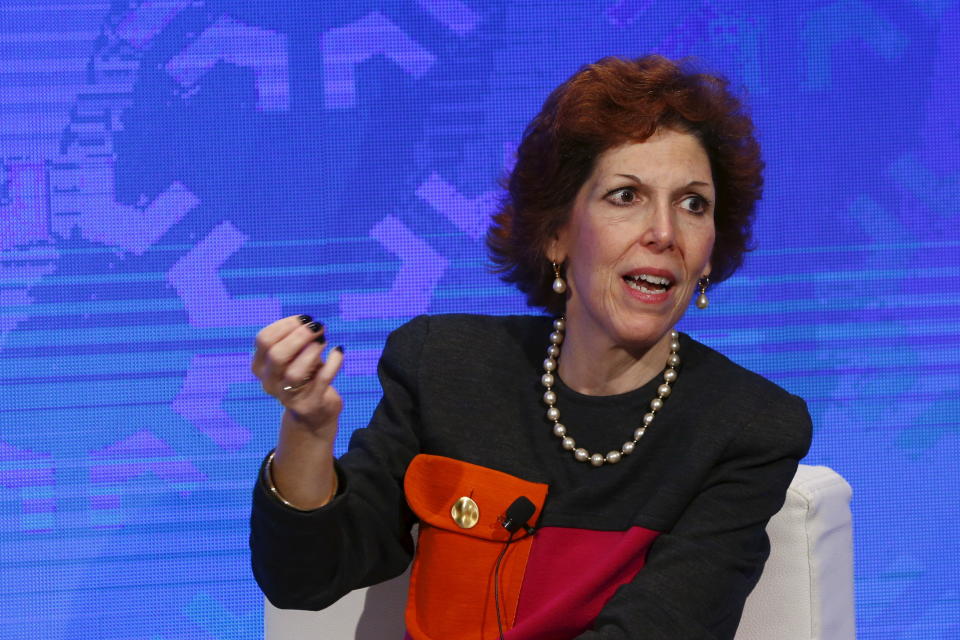
LORETTA MESTER: So I thought it was a very good speech in the sense of really fitting in with the theme of the conference, which was challenges for monetary policy. And he outlined sort of different areas and the challenges faced by policymakers in those areas, whether it be the high inflation period, and the period where the Fed had to take some aggressive actions. Whether it be the financial crisis and the actions, again, you know, pretty aggressive and untraditional actions the Fed took. And then the modern times, where interest rates are probably going to be lower than they were pre-crisis and pre-Great Recession.
And so there's challenges across all those areas. And so I think the bottom line is that you know, monetary policy really always faces challenges, and then it's up to the policymakers to handle them best they can. But across all those periods of course, are dual mandate goals predominantly. And that's the way I approach policy today — is always focused on what can we do with our monetary policy to make sure that we are promoting price stability and maximum employment.
BRIAN CHEUNG: So Chairman Powell described the Fed as being this kind of third stage right now where there's a lot of unprecedented issues that are difficult to model, one of them being trade. How do you currently assess the risks of trade? Does that warrant policy easing to make sure that softens the blow to the U.S. economy or not?
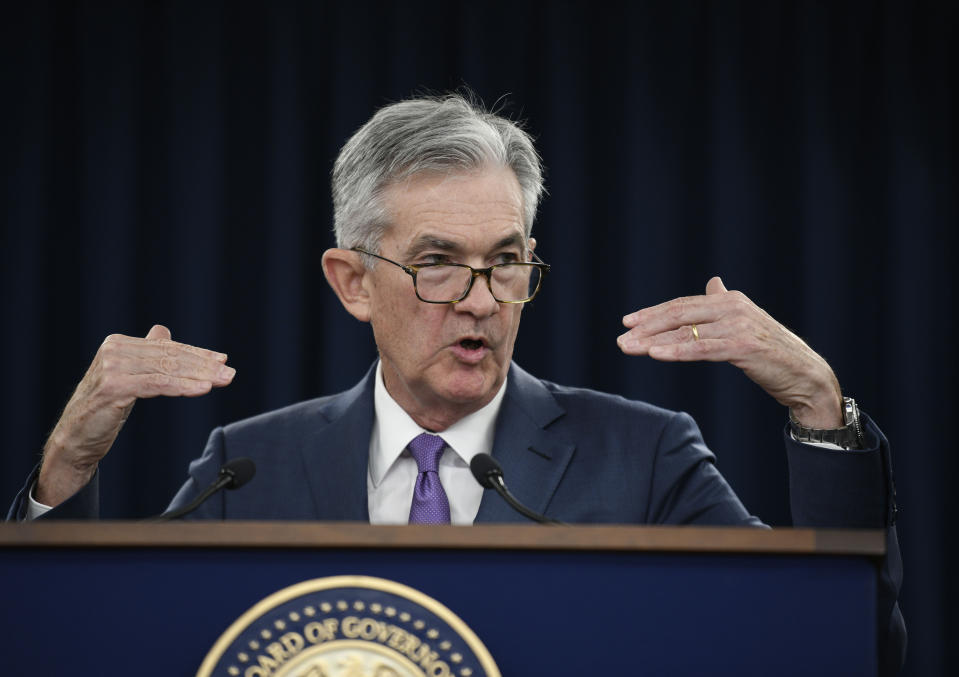
LORETTA MESTER: OK, so there's no doubt that trade uncertainty and the tariff battles that are going back and forth has really been a cloud on the outlook. You hear from firms that we talked to in our district and in other Federal Reserve districts about how concerned they are about the tariff situation and trade policy. And the uncertainty about what's next in trade policy is something they point out. So it's definitely a headwind and a downside risk to the economy.
At the same time, right, even though investment is slow, probably mainly driven by trade, but also, weaker growth abroad, which is partly driven by trade policy, you have a consumer side that's actually held up very well. And you have strong labor markets and wages going up. So we have sort of the overall economy is still performing around trend, and that's kind of what we expected for the year.
So again, this is all about assessing the risk and making sure that our policy is well calibrated to the outlook for the economy going forward. And that's what I'm going to be doing over this intermediate period that we have about a couple — two or three weeks more until we get to that September meeting.
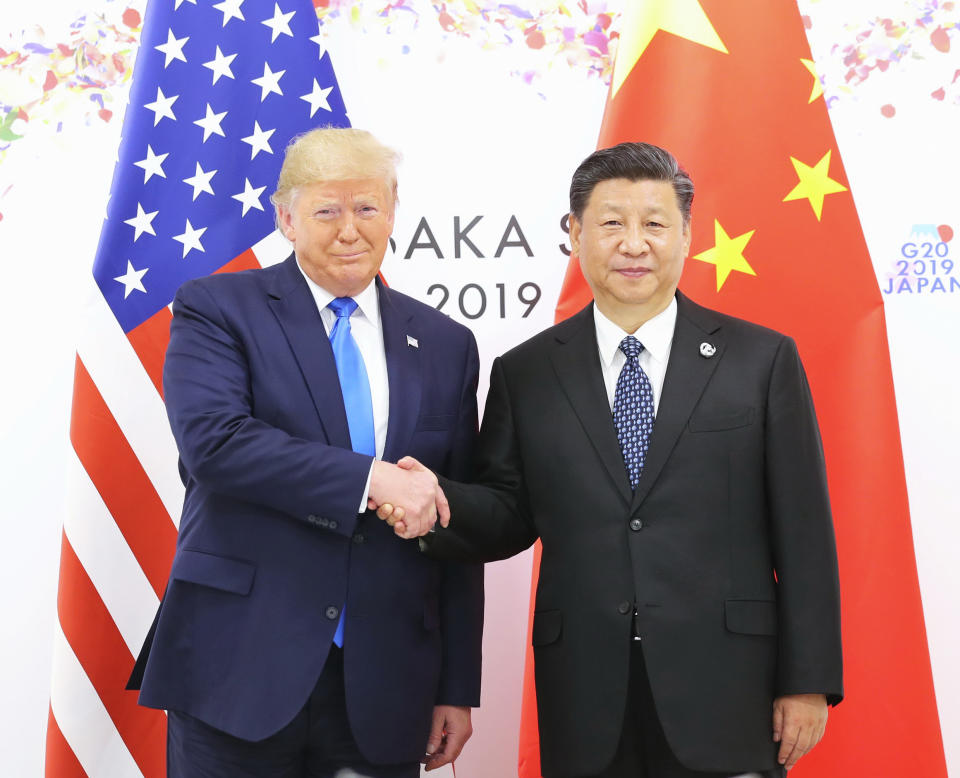
BRIAN CHEUNG: And since the July 31 meeting, there's been a lot of headlines crossing in terms of trade. Actually just this morning, President Trump saying he might take some action that he'll announce later this afternoon in terms of responding to Chinese tariffs announced this morning. Should the Fed be watching these headlines by the headline? Or should the Fed be kind of pushing further on those insurance cuts to kind of back up against that risk?
LORETTA MESTER: Well, I mean, I guess whenever you're thinking about policy, it's always — you always have to be forward looking. And no doubt this uncertainty around trade is going to be a drag on the economy. How much of a drag is that what we're trying to assess. And so that's why it's very important that we constantly talk to our business contacts.
In Ohio, the contacts and in across the district, my Fourth District, which includes parts of Pennsylvania, West Virginia, and Kentucky, a lot of the firms say they're concerned about trade, but they're basically on plan for what their investment plans spending was this year.
Now the larger firms that are more internationally exposed multinational firms, they're actually pulling back on some of their investment until some, they get some clarity on trade. Unfortunately, it doesn't look like we're going to get much clarity and we've been in this uncertain period for quite awhile. What I want to focus on is, is that it's spilling over to the broader economy? Are firms now going to say there's so much uncertainty out there that not only am I not spending, I also may have to reduce my plant hiring. And that I think, will be a significant event of it actually spilling over. So I'm focused on that, I'm focused on the consumer side.
BRIAN CHEUNG: And to be clear, you haven't seen that spill-over yet.
LORETTA MESTER: We have not seen that spill-over yet.
BRIAN CHEUNG: If you do you see that spill-over, would that warrant a policy adjustment?
LORETTA MESTER: Well, I think that's really the catalysts of thinking like, OK, instead of being in this, you know, slowing the trend growth, there's a possibility there that we're going to be slowing further. And that would be the recalibration. OK, well maybe then you would need to take some action.
But we're not there yet, you're exactly right. Firms still are saying they're finding it hard to find workers, needed workers for their operations as they are now. They're still hiring. And they're still raising wages to either attract and/or maintain their workforce. So you know, the labor side has been one of the strengths of the economy. And that's what I'm focused on.
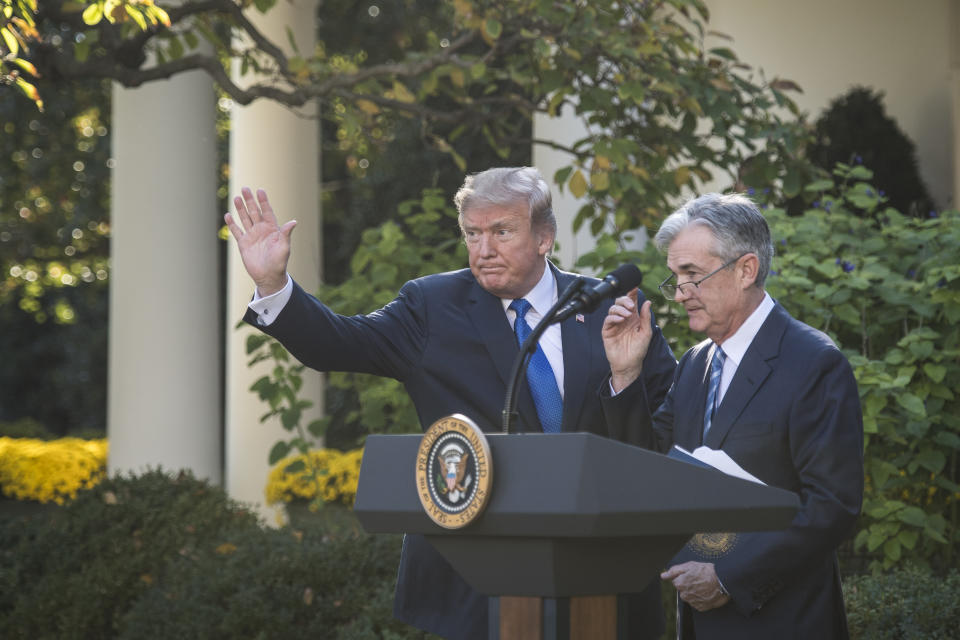
BRIAN CHEUNG: So on Fed independence this morning, President Trump compared the risks to the U.S. economy asked what is the bigger enemy to the US economy right now, is it China or is it Jay Powell — and he actually used him by name. How challenging is it in terms of maintaining fed independence in this political climate at the moment? And how should the Fed be either pushing back on that or dealing with some of that criticism?
LORETTA MESTER: Well, as you know, right, we're independent in the sense that we can make monetary policy decisions independent from short-run political considerations. And we want to maintain that because there's a body of work that basically shows that if you have a central bank that's formulated that way, you get better outcomes. So you get better economic outcomes for the people in their country.
And so that's the way the Fed has operated all along. We aren't independent in the sense of not being held accountable. We are accountable. We're accountable to the Congress and to the American people.
And so you know when you have the privilege of working for an honorable institution like the Federal Reserve System, you do face challenges. That's part of the job. But those challenges give you an opportunity to have really going on and explaining how we approach policy, what our rationale for our policy decisions are. And really, making sure that people understand we're focused on our dual mandate goals: price stability, maximum employment.
And it is a complicated environment we're in terms of the global economy and our linkages. But we're always focused and driven by making policy in order to achieve those goals. And we hold ourselves accountable for our actions.
If we do that, then I think we can earn the trust and maintain the trust of the American people. And that's what I think we should be doing in this environment. And I think Jay Powell has been doing that in terms of really emphasizing transparency as part of you know, one of his key principles.
BRIAN CHEUNG: Now on transparency right now, the Fed — you know, it's definitely a communications challenge as we saw with FOMC minutes. It's a wide range of views in terms of what should have been done in that July 31 meeting. I know that you have said in the past it was a close call in terms of making that 25 basis point cut in July. Does the Fed face a credibility issue in communicating that there were some concerns that maybe the December cut — or rather, the December rate hike at the end of last year maybe shouldn't have been the ultimate policy option there? How challenging has it been for the Fed?
LORETTA MESTER: Well, I think you know, when you're in an environment where there's uncertainty, right, and there are different opinions about how to weigh sort of the risks around the economy you should expect there to be differences of opinion among policymakers. And in fact, that's a strength of the policy making framework. That's one of our strengths is that we come into the meeting, you know, we have a lot of staff work that's going on, we've had a lot of contacts with businesses, and labor market leaders, and consumer sector people in our districts. We come into the meeting with that information and with a view of where we think policy should be and where the economy is going in terms of the outlook.
But we discuss it around the table. And so I gain a lot by those discussions. I hear a lot around the table that I then incorporate into my own viewpoint. And then we come to a consensus. And sometimes, there'll be dissents because people have different views. But that's a strength of the institution. It avoids group think. It really brings to the table the best information, the best analysis we can do. And then we recalibrate if necessary, and keep going. So we're always — but everyone around that table focuses on our dual mandate goals.
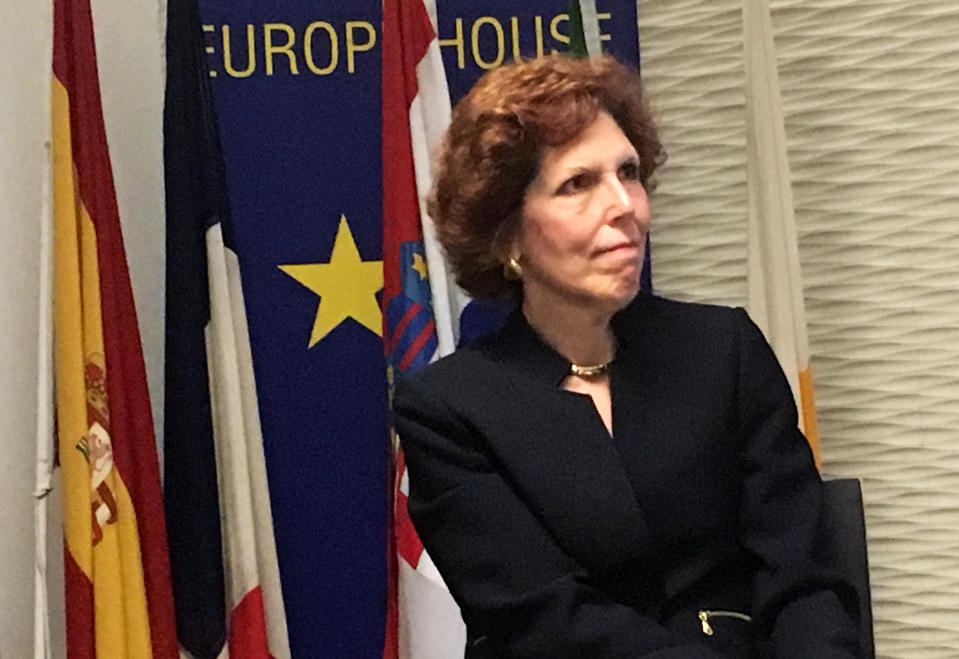
BRIAN CHEUNG: So to come back to kind of full you know full circle here, the two unprecedented issues that the Fed face right now are how to deal with the trade concerns, and then also, how to deal with the unprecedented level of criticism from the White House. How much time is spent in those FOMC meetings discussing whether or not rate policy should be adjusted on those things? And you know, you're not an FOMC voter this year, but it's important for all our viewers to know that all the Fed presidents are part of that discussion. So what is that like — is it pretty hot debate as of late?
LORETTA MESTER: No. I mean, we're a collegial group, OK? And we really foster that collegiality so that we feel very comfortable expressing views that may be alternative views to someone else around that table. And we do it in a very respectful manner. I could say — I've been going to FOMC meetings since 2000, for a long time before I was Fed president. I had the opportunity to go as a research director.
Politics never enters that room. We don't discuss. It has no bearing on how we make decisions. We really are focused in on what's the best policy that we can set to achieve the dual mandate goals. And we talk about the economy, we talk about the data, we talk about other information from financial market data movements, of course, as part of the discussion. We talk about the information we're gaining from our business contacts, and financial market contacts, and labor market contacts. And we really then formulate a consensus view around that information. And that's kind of how we approach policy.
BRIAN CHEUNG: And then lastly, one challenge that Jay Powell laid out was this meeting where the neutral rate is. That's been something that there's no real bright line test for. You can estimate it, but at best, it's an estimate. Where is the neutral rate right now in your view based on what you see in the Fourth District? And is the current federal funds rate appropriately calibrated?
LORETTA MESTER: OK, so there's really two kinds of neutral rates to think about here. There's the long run neutral rate, which we know is lower because of demographics and search for — not search for yield, but search for safe assets, demand for safe assets, right? And that's lower than it was before the Great Recession. And there's a lot of reasons to believe that it will stay low — stay a bit lower than it was before.
But then there's also really, what's driving sort of the neutral rate in the short run sense over which a policy cycle can manage, right? So that's short-run neutral, right?
My own view of where they come is right now is we're about at neutral. But as you know, there's a lot of bands of estimates around that. But that's where you are very dependent on how the economy is performing, right? You're not going to have a precise estimate of that, but you're going to look at economic developments, financial market developments formulate your outlook. And then really, see whether OK, it looks like interest rates are coming you know the natural rate or the short run rate is coming down. You want to bring your policy rate down.
Because if you didn't do that, if things were weakening too much, and you didn't, that essentially would be tighter policy. And so that's the challenge. The challenge is to monitor the economy. Look at the incoming information that we have on economic developments. What it means for the medium run outlook, and set your policy according to that.
BRIAN CHEUNG: And another interesting panel actually coming up later today about what does it mean to be a data dependent central banker, so worth watching. But Cleveland Fed President Loretta Messer, thank you so much for sitting down with us out here in beautiful Jackson Hole, Wyoming.
LORETTA MESTER: Thanks very much for having me.
-Jillian Harding and Daryen Ru contributed to this report
Brian Cheung is a reporter covering the banking industry and the intersection of finance and policy for Yahoo Finance. You can follow him on Twitter @bcheungz.
Bonds, yields, and why it matters when the yield curve inverts: Yahoo U
YIELD CURVE INVERTS: Recession indicator flashes red for first time
Congress may have accidentally freed nearly all banks from the Volcker Rule
Read the latest financial and business news from Yahoo Finance



